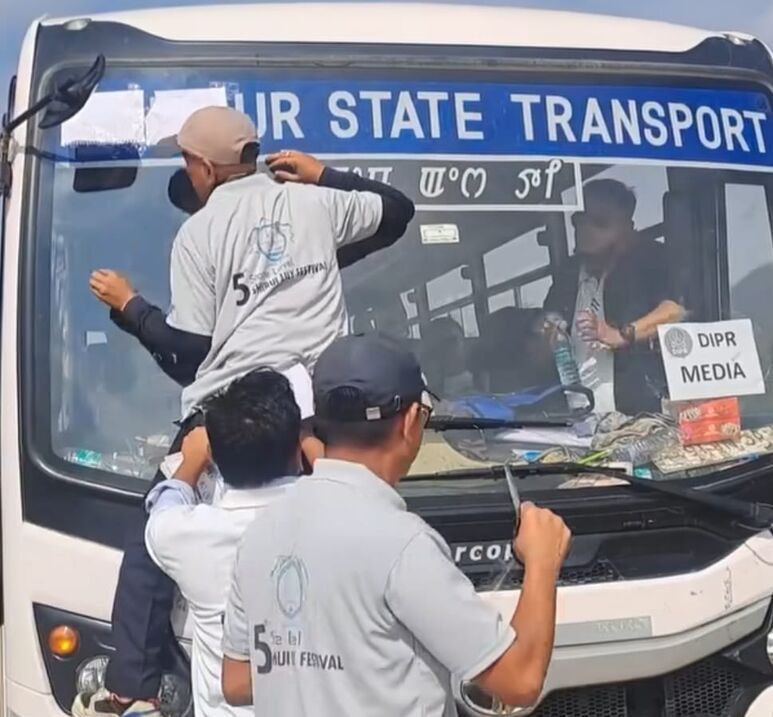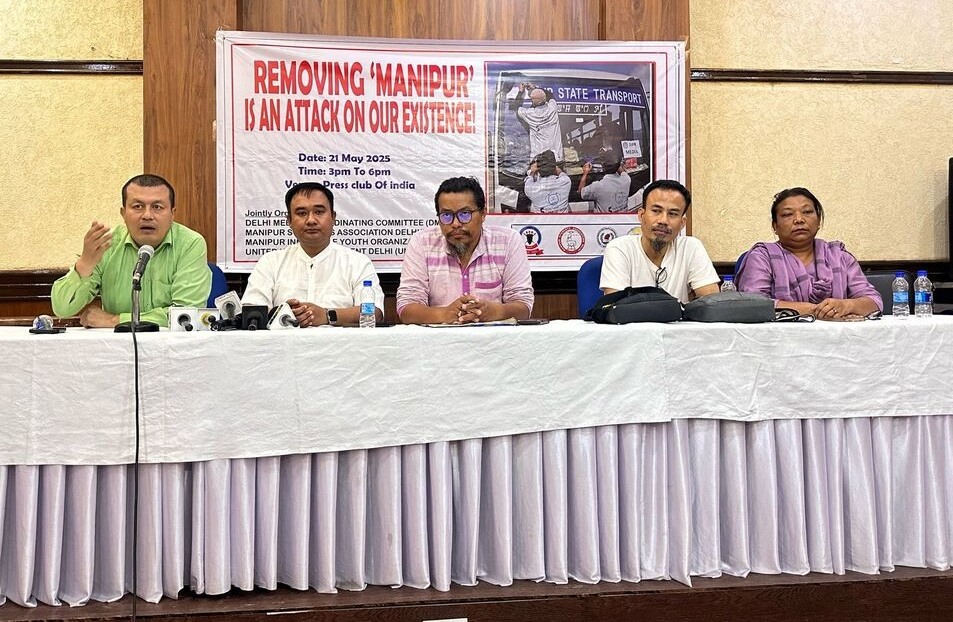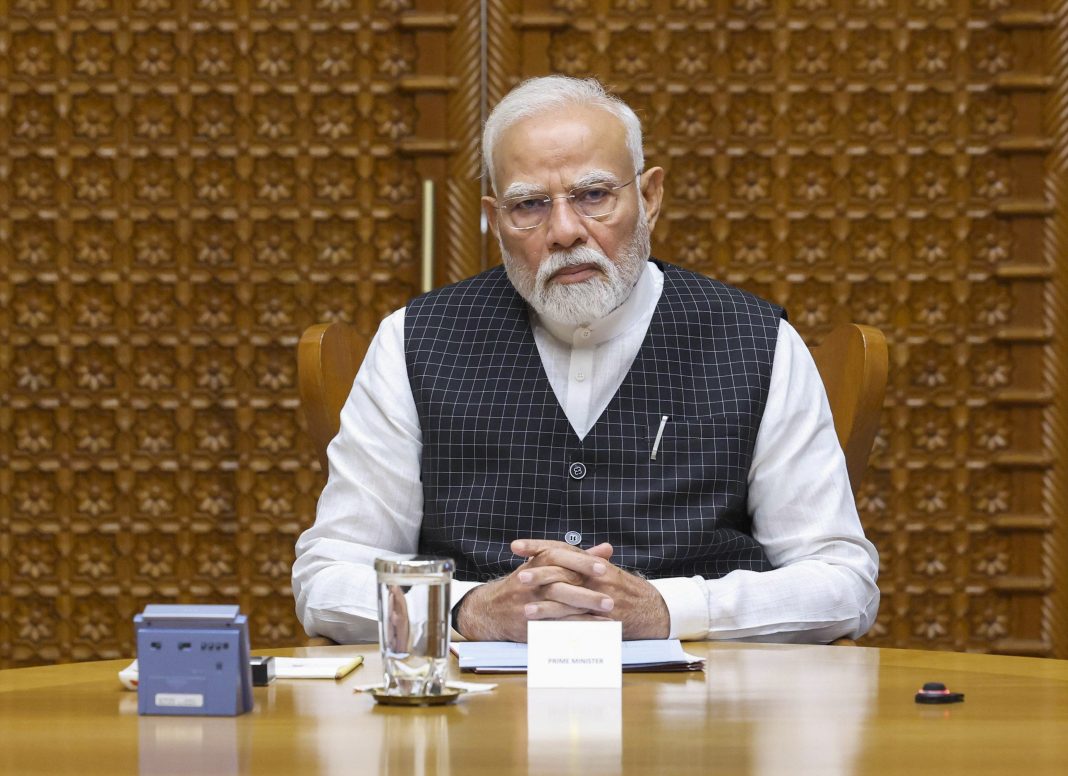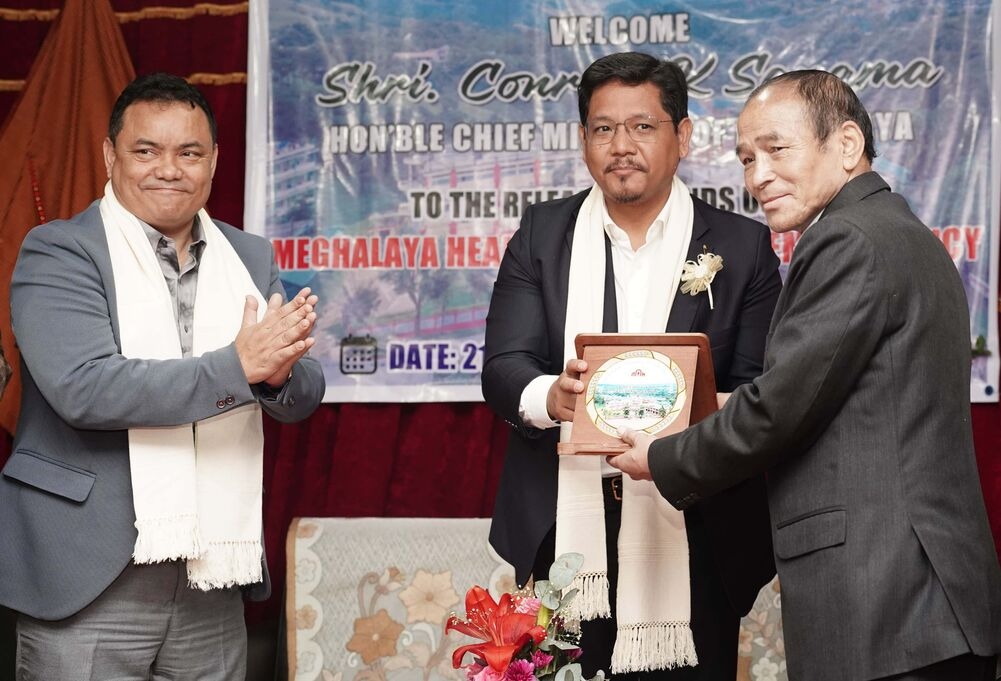
Guwahati, May 21: A coalition of Delhi-based Meitei organisations — including the Delhi Meitei Coordinating Committee (DMCC), MSAD, MAIYON, and UNIKAS — has launched a scathing condemnation of an incident in which the ‘Manipur’ signage was removed from a Manipur State Transport (MST) bus by the Maha Regiment at Gwalthabi checkpoint, about 25 km from Imphal, on May 20.
The bus was carrying journalists to cover the Shirui Lily Festival in Ukhrul district. The act, allegedly carried out under the pretext of “security concerns,” has triggered outrage, with Meitei leaders calling it a deliberate assault on Manipur’s identity, sovereignty, and dignity.
Addressing a press conference at the Press Club of India in New Delhi, Meitei leaders accused the Indian state of orchestrating a campaign to erase Manipur’s cultural and political identity under the guise of national security.

“This isn’t just an order—it’s a calculated insult,” said Dr. Seram Rojesh, DMCC convenor. “Security forces, instead of protecting Manipur, are humiliating its people and appeasing armed Kuki militants. This is not a communal conflict, it’s a state-sponsored proxy war to dismantle Manipur’s integrity.”
According to statements made during the press briefing, the signage removal was allegedly ordered during a meeting chaired by the Governor of Manipur, as confirmed by the state’s Security Advisor Kuldeep. Leaders say this indicates an institutional push to suppress Manipur’s identity.
Hijam Rajen, DMCC advisor, questioned India’s democratic values: “From Major Jotin’s sacrifice in Afghanistan to Mirabai Chanu’s global sports achievements—Manipur has contributed to India’s nationhood. But this humiliation raises the painful question: Was the 1949 Merger Agreement a mistake?”
Sangeeta Keisham, DMCC’s women’s wing spokesperson, labelled the act as a direct attack on press freedom and a calculated effort to erase Meitei identity. “We had to hide our identity to cover a festival meant to celebrate coexistence. That’s not security—it’s censorship and cultural suppression.”
DMCC member Neilchandra pointed out the irony of suppressing Manipur’s name during a unity-focused festival: “The Shirui Lily Festival is about bringing communities together. Stripping the name ‘Manipur’ from a government vehicle sends a chilling message—like Manipur no longer exists on India’s map.”

Dr. Bobo, DMCC spokesperson, called it an attack on the entire Indian media ecosystem: “When media is forced to hide its state identity, it’s an attack on democracy. From Moirang’s historic hoisting of the Indian flag to today—what changed? Why is Manipur treated as less than any other Indian state?”
The Meitei groups have demanded public apology from the Prime Minister, Home Minister, and Defence Minister, immediate cessation of signage removal orders and withdrawal of security forces if they fail to protect Manipur’s identity.

They also demanded to end to state support for Kuki militants under the “Suspension of Operation” agreement, freedom of movement for journalists and citizens within Manipur
“Manipur will not surrender its identity,” the joint statement read. “Attempts to balkanize the state or erase its name are acts of aggression. We will not tolerate cultural genocide disguised as governance.”
The groups warned that continued provocation may inflame tensions and undermine the cultural unity of India.





